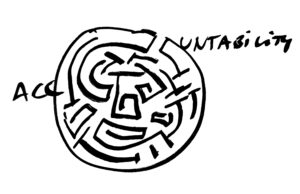This panel examined different European engagements with corporate accountability for major
international crimes, such as envisioned and promoted by European institutions, national
governments, transnational NGOs and business communities. It aimed to understand the way in
which the criminalization of corporate involvement in major international crimes is constructed as
a global cause by different actors who take part in the process. It investigated both ex ante
dimensions – that is, attempts to regulate businesses behaviour and codify their criminal liability –
and ex post dimensions, such as strategic litigation aimed at establishing legal precedents, and
creating a new body of jurisprudence. By focusing on a variety of business industries – including
private military and security firms, digital or extractive industries – and on diverse state and non-
state actors, the panel underlined conflicting visions of corporate accountability at a European
level. Firstly, it emphasized how European institutions and governments half-heartedly committed
to strong corporate responsibility, often in contrast to call for regulation coming from the civil
society. Secondly, it showed how transnational streams of political, economic and symbolic power
perpetuate long-term inequalities between the Global North and the Global South at different
levels, including in the activity of transitional NGOs.
